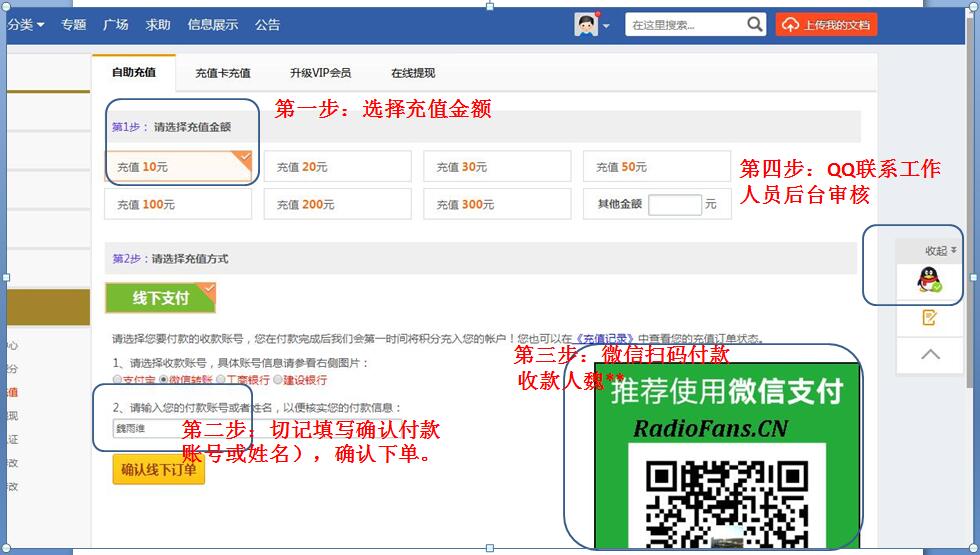 JVC-MXDK15-cs-sm维修电路原理图.pdf
JVC-MXDK15-cs-sm维修电路原理图.pdf
《JVC-MXDK15-cs-sm维修电路原理图.pdf》由会员分享,可在线阅读,更多相关《JVC-MXDK15-cs-sm维修电路原理图.pdf(67页珍藏版)》请在收音机爱好者资料库上搜索。
1、SERVICE MANUAL COPYRIGHT 2006 Victor Company of Japan, Limited No.MB515 2006/6 COMPACT COMPONENT SYSTEM MB51520066 MX-DK1US,MX-DK1UW,MX-DK1UG,MX-DK1UN, MX-DK3US,MX-DK3UW,MX-DK3UG,MX-DK3UN,MX-DK15UN Lead free solder used in the board (material : Sn-Ag-Cu, melting point : 219 Centigrade) TABLE OF CONT
2、ENTS 1PRECAUTION. . . . . . . . . . . . . . . . . . . . . . . . . . . . . . . . . . . . . . . . . . . . . . . . . . . . . . . . . . . . . . . . . . . . . . . . . 1-4 2SPECIFIC SERVICE INSTRUCTIONS. . . . . . . . . . . . . . . . . . . . . . . . . . . . . . . . . . . . . . . . . . . . . . . . . . . .
3、. . 1-7 3DISASSEMBLY . . . . . . . . . . . . . . . . . . . . . . . . . . . . . . . . . . . . . . . . . . . . . . . . . . . . . . . . . . . . . . . . . . . . . . . 1-8 4ADJUSTMENT . . . . . . . . . . . . . . . . . . . . . . . . . . . . . . . . . . . . . . . . . . . . . . . . . . . . . . . . . . . . .
4、 . . . . . . . . . . 1-19 5TROUBLESHOOTING . . . . . . . . . . . . . . . . . . . . . . . . . . . . . . . . . . . . . . . . . . . . . . . . . . . . . . . . . . . . . . . . . 1-21 CA-MXDK3SP-MXDK3FSP-MXDK3F CA-MXDK1SP-MXDK1FSP-MXDK1F CA-MXDK15SP-MXDK15FSP-MXDK15F SP-MXDK3W RadioFans.CN 收音机爱 好者资料库 1-2
5、(No.MB515) SPECIFICATION Amplifier sectionOutput PowerCA-MXDK1/CA-MXDK1590 W per channel, min. RMS, driven into 6 at 1 kHz with no more than 10% total harmonic distortion. CA-MXDK3MAIN SPEAKERS100 W per channel, min. RMS, driven into 6 at 1 kHz with no more than 10% total harmonic distortion. SUBWOO
6、FERS100 W per channel, min. RMS, driven into 6 at 63 Hz with no more than 10% total harmonic distortion. Digital outputOPTICAL DIGITAL OUTPUT-21 dBm to -15 dBm (660 nm 30 nm) Audio input sensitivity/ Impedance*1 AUX400 mV/47 k MIC 1/23.0 mV/50 k VIDEO OUTColor systemNTSC/PAL selectable VIDEO (compos
7、ite)1 V(p-p)/75 S-VIDEOY (luminance)1 V(p-p)/75 C (chrominance, burst) 0.286 V(p-p)/75 COMPONENT (Interlace/Progressive: CA-MXDK5 only) (Y)1 V(p-p)/75 (PB/PR)0.7 V(p-p)/75 Speaker Terminals6 - 16 (Main speakers) 6 - 16 (Subwoofers) Tuner sectionFM tuning range87.50 MHz - 108.00 MHz AM (MW) tuning ra
8、nge531 kHz - 1 710 kHz (at 9 kHz) 530 kHz - 1 710 kHz (at 10 kHz) 531 kHz - 1 602 kHz (at 9 kHz) (For Saudi Arabia only) 530 kHz - 1 600 kHz (at 10 kHz) Disc player sectionPlayable discDVD Video/DVD Audio*2/CD/VCD/SVCD CD-R/-RW/-ROM (CD/VCD/SVCD/MP3/WMA/MPEG- 1/MPEG-2/ASF*2/JPEG/DivX*2 format) DVD-R
9、/-RW (DVD Video/DVD Video Recording (VR)/ MP3/WMA/MPEG-1/MPEG-2/ASF*2/JPEG/DivX*2 for- mat) +R/+RW (DVD Video format) Dynamic range90 dB Horizontal resolution500 lines Wow and flutterImmeasurable Cassette deck section Frequency response Normal (type I)50 Hz - 14 000 Hz Wow and flutter0.15% (WRMS) Ge
10、neralPower requirementAC 110 V / AC 127 V / AC 220 V / AC 230 V - AC 240 V , (adjustable with the voltage selector), 50 Hz / 60 Hz Power consumption at operation160 W (CA-MXDK3) 95 W (CA-MXDK1/ CA-MXDK15) on standby20 W (CA-MXDK3) 17 W (CA-MXDK1/ CA-MXDK15) Dimensions (approx.)265 mm 337 mm 370 mm (
11、W/H/D) Mass (approx.)CA-MXDK5/CA-MXDK38.4 kg CA-MXDK1/CA-MXDK157.9 kg RadioFans.CN 收音机爱 好者资料库 (No.MB515)1-3 *1: Measured at 1 kHz, with tape recording signal 400 mV) *2: CA-MXDK5 only Design and specifications are subject to change without notice. Speaker section (except for MX-DK5) Main speakers (S
12、P-MXDK3F/ SP-MXDK1F/ SP-MXDK15F) Type3-Way 3-Speaker Bass Reflex Type (Magnetically-Shielded Type) SpeakersWoofer16 cm cone 1 Midrange5 cm cone 1 Tweeter2 cm dome 1 Power handling capacity100 W (SP-MXDK3F) 80 W (SP-MXDK1F/SP-MXDK15F) Impedance6 Frequency range45 Hz - 20 000 Hz Sound pressure level85
13、 dB/Wm Dimensions (approx.)215 mm 337 mm 259 mm (W/H/D) Mass (approx.)3.7 kg each Subwoofer (SP-MXDK3W) (only for MX-DK3) Type1-Way Bass Reflex Type (Magnetically-Shielded Type) Speaker16 cm cone 1 Power handling capacity100 W Impedance6 Dimensions (approx.)215 mm 337 mm 259 mm (W/H/D) Mass (approx.
14、)3.5 kg 1-4 (No.MB515) SECTION 1 PRECAUTION 1.1Safety Precautions (1) This design of this product contains special hardware and many circuits and components specially for safety purpos- es. For continued protection, no changes should be made to the original design unless authorized in writing by the
15、 manufacturer. Replacement parts must be identical to those used in the original circuits. Services should be per- formed by qualified personnel only. (2) Alterations of the design or circuitry of the product should not be made. Any design alterations of the product should not be made. Any design al
16、terations or additions will void the manufacturers warranty and will further relieve the manufacture of responsibility for personal injury or property damage resulting therefrom. (3) Many electrical and mechanical parts in the products have special safety-related characteristics. These characteris-
17、tics are often not evident from visual inspection nor can the protection afforded by them necessarily be obtained by us- ing replacement components rated for higher voltage, watt- age, etc. Replacement parts which have these special safety characteristics are identified in the Parts List of Ser- vic
18、e Manual. Electrical components having such features are identified by shading on the schematics and by ( ) on the Parts List in the Service Manual. The use of a substitute replacement which does not have the same safety charac- teristics as the recommended replacement parts shown in the Parts List
19、of Service Manual may create shock, fire, or other hazards. (4) The leads in the products are routed and dressed with ties, clamps, tubings, barriers and the like to be separated from live parts, high temperature parts, moving parts and/or sharp edges for the prevention of electric shock and fire ha
20、zard. When service is required, the original lead routing and dress should be observed, and it should be confirmed that they have been returned to normal, after reassem- bling. (5) Leakage shock hazard testing After reassembling the product, always perform an isola- tion check on the exposed metal p
21、arts of the product (an- tenna terminals, knobs, metal cabinet, screw heads, headphone jack, control shafts, etc.) to be sure the product is safe to operate without danger of electrical shock.Do not use a line isolation transformer during this check. Plug the AC line cord directly into the AC outlet
22、. Using a Leakage Current Tester, measure the leakage current from each exposed metal parts of the cabinet, particular- ly any exposed metal part having a return path to the chassis, to a known good earth ground. Any leakage cur- rent must not exceed 0.5mA AC (r.m.s.). Alternate check method Plug th
23、e AC line cord directly into the AC outlet. Use an AC voltmeter having, 1,000 per volt or more sensitivity in the following manner. Connect a 1,500 10W resistor paralleled by a 0.15F AC-type capacitor between an ex- posed metal part and a known good earth ground. Measure the AC voltage across the re
24、sistor with the AC voltmeter. Move the resistor connection to each exposed metal part, particularly any exposed metal part having a return path to the chassis, and measure the AC voltage across the resistor. Now, reverse the plug in the AC outlet and repeat each measurement. Voltage measured any mus
- 配套讲稿:
如PPT文件的首页显示word图标,表示该PPT已包含配套word讲稿。双击word图标可打开word文档。
- 特殊限制:
部分文档作品中含有的国旗、国徽等图片,仅作为作品整体效果示例展示,禁止商用。设计者仅对作品中独创性部分享有著作权。
- 关 键 词:
- JVC MXDK15 cs sm 维修 电路 原理图
 收音机爱好者资料库所有资源均是用户自行上传分享,仅供网友学习交流,未经上传用户书面授权,请勿作他用。
收音机爱好者资料库所有资源均是用户自行上传分享,仅供网友学习交流,未经上传用户书面授权,请勿作他用。



 Marshall-9100-62-02-Schematic电路原理图.pdf
Marshall-9100-62-02-Schematic电路原理图.pdf


